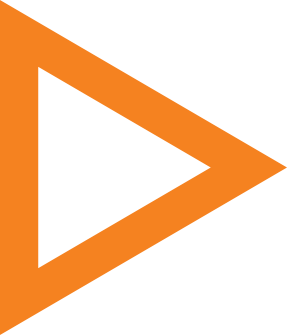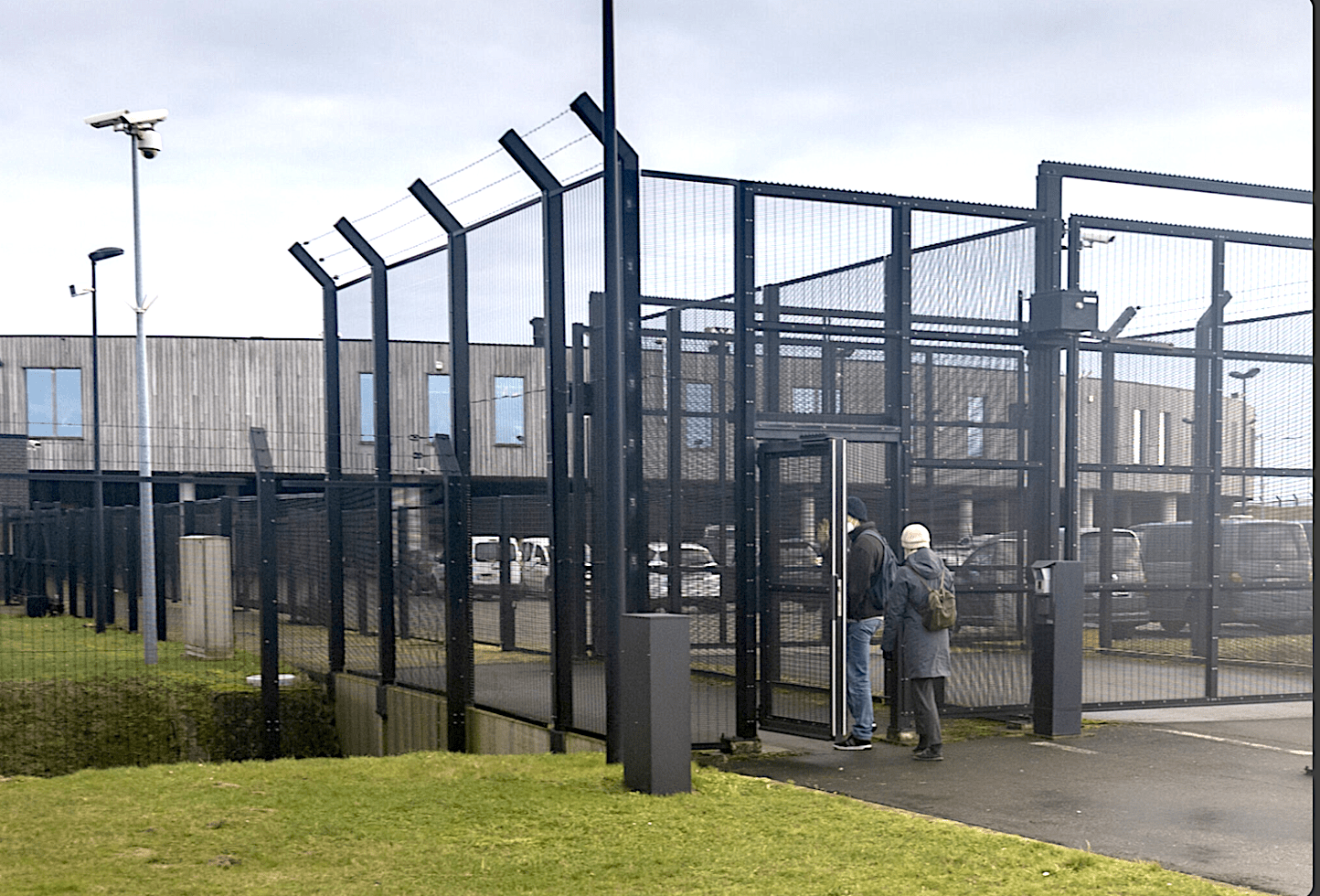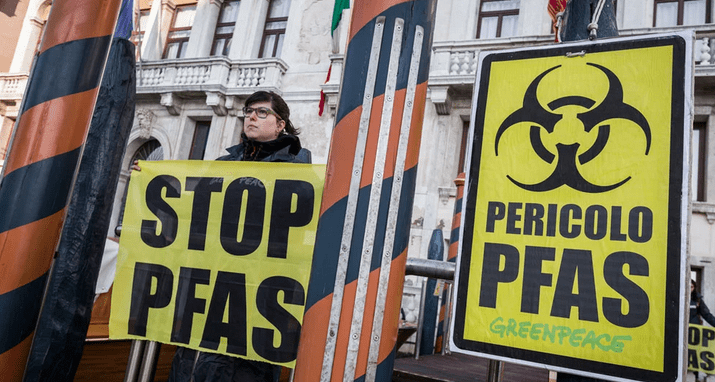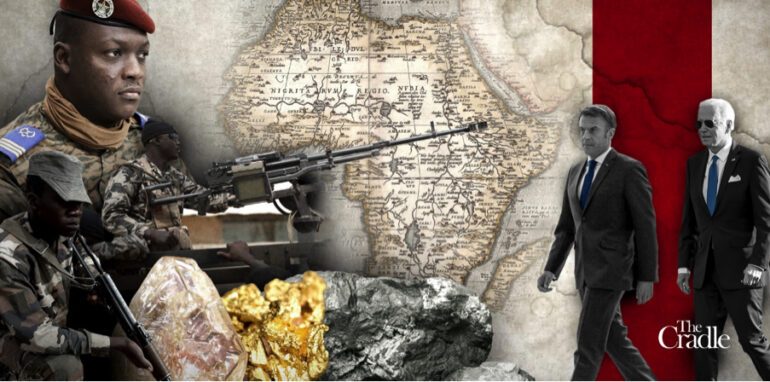Text in English below
Politici Hadja Lahbib, Darya Safai, Els Van Hoof, Björn Anseeuw en Theo Francken gingen een stap verder en betuigden hun steun aan de Iraanse vrijheidsstrijders én namen officieel enkele van de met executie bedreigde gevangen demonstranten onder hun bescherming. Dit lijkt geweldig, maar ik vrees dat niet één van deze mensen echt bereid is Iraniërs te helpen die in hun land worden vervolgd. Het maakt allemaal deel uit van de dagelijkse portie leugens die politici over ons uitstrooien.
‘Politieke bescherming’, wat is dat eigenlijk? Het klinkt als iets invloedrijks, maar is in feite niets meer dan een stem geven aan mensen die al gehoord werden. In democratische landen kan internationale politieke druk de besluitvormers er misschien van weerhouden het verkeerde te doen, maar in een land als Iran is dat volstrekt irrelevant.
Vergeet niet dat Iran het tweede meest gesanctioneerde land ter wereld is, na Rusland. En vóór de Russische inval in Oekraïne in 2022 stond Iran al meer dan 11 jaar op de eerste plaats op die lijst. Hield het Iraanse regime op met zijn mensenrechtenschendingen en steun aan terrorisme? Het antwoord op deze vraag laat zien hoezeer de ayatollahs alle politieke en economische druk aan hun laars lappen.
Terwijl bovengenoemde Belgische parlementsleden en politici beweren dat ze Iraniërs willen redden van vervolging in Iran, zwijgen ze over het onrecht dat Iraanse vluchtelingen in België wordt aangedaan.
Helaas is op die manier dat hele ‘politieke beschermheerschap’ een waardeloze zaak. Iran heeft zojuist Seyed Mohamad Hoseini geëxecuteerd, die drie politieke beschermers had, waaronder Darya Safai. Wat was haar reactie op deze, in haar eigen woorden, ‘grote ramp’? Ze uitte haar ‘grote droefheid’ in een paar tweets.
Hesam Mousavi, een Iraanse bergbeklimmer, is een andere gevangene wiens executie op handen is. Ten onrechte beschuldigd van ‘handelingen tegen de nationale veiligheid’ en ‘terreurdaden’ zal deze jongeman, die Theo Francken als politiek beschermheer heeft, door het regime in Iran van het leven worden beroofd.
Gezien deze feiten zou je kunnen denken dat Belgische politici verder niets kunnen doen om Iraniërs te beschermen. Zij hebben immers geen zeggenschap in Iran. Hier komt de duistere kant van de politiek om de hoek kijken. Terwijl bovengenoemde Belgische parlementsleden en politici beweren dat ze Iraniërs willen redden van vervolging in Iran, zwijgen ze over het onrecht dat Iraanse vluchtelingen in België wordt aangedaan.
33,9% van de Iraanse vluchtelingen wordt erkend
In de asielstatistieken 2021 van het Commissariaat-Generaal voor de Vluchtelingen en de Staatlozen (CGVS) staat Iran op de tiende plaats in de top tien van herkomstlanden volgens het aantal personen dat een erkenning van de vluchtelingenstatus ontving.
Het erkenningspercentage voor Iraniërs bedroeg in dat jaar 33,9%, wat betekent dat van elke 100 Iraniërs die in België internationale bescherming aanvroegen, er minder dan 34 die bescherming kregen. De rest werd verzocht het land te verlaten. Tegelijkertijd bedroeg het erkenningspercentage voor Turkse vluchtelingen in 2021 64,7%, waardoor Turkije op plaats 7 kwam te staan in de eerder genoemde lijst.
Een vergelijking van deze cijfers met de recentste statistieken (november 2022) maakt de vreselijke trend duidelijk. Terwijl Iran in november het 7e land is met het grootste aantal mensen dat in België om internationale bescherming vraagt, komt het niet eens meer voor in de top 10 van landen met de meeste erkende vluchtelingen. Dat betekent dat Iraanse vluchtelingen in België in een nog slechtere positie verkeren, terwijl het land geconfronteerd wordt met de langstdurende en dodelijkste straatprotesten sinds de revolutie van 1979.
Tezelfdertijd is het erkenningspercentage van Turkse asielzoekers gestegen tot 72,8%. Het CGVS mag beweren dat elke asielaanvraag onafhankelijk wordt onderzocht, ongeacht de situatie in het land, maar geen zinnig mens kan aannemen dat in Turkije de politieke en mensenrechtensituatie slechter zou zijn dan in Iran, wereldwijd het land dat op één na de meeste executies per jaar uitvoert en op twee na het meeste journalisten gevangen houdt.
Onze politici nemen geen verantwoordelijkheid
Terwijl onschuldigen geëxecuteerd worden en journalisten gevangengenomen reppen de Belgische politici, die beweren dat ze de vervolging in Iran een halt willen toeroepen, met geen woord over de systematische afwijzing van Iraanse vluchtelingen.
Zelfs Els Van Hoof van de CD&V, de partij van de staatssecretaris voor Asiel en Migratie, doet er het zwijgen toe. Als ze echt de Iraniërs willen helpen, waarom beginnen ze dan niet met degenen die al in België zijn en dus geholpen kúnnen worden? Het regime in Iran reageert misschien niet op hun verzoeken, maar de Belgische overheid zou dat wel doen.
Als het doel is om mensen te redden van vervolging en lijden, toegebracht door een ‘terroristisch regime’, waarom vragen ze dan aan mensen die het op eigen kracht al tot hier gehaald hebben om terug te keren naar Iran? Het antwoord is simpel: omdat ze niet echt de verantwoordelijkheid willen nemen en er de prijs voor betalen. Zo doen politici dat.
Als ze echt de Iraniërs willen helpen, waarom beginnen ze dan niet met degenen die al in België zijn?
Het merendeel van die zogenaamde filantropen behoort tot extreemrechtse partijen als de N-VA – denk aan Theo Francken, Björn Anseeuw en Darya Safai – en het is algemeen bekend dat voor die partijen ‘vluchtelingen bijstaan’ taboe is en dat je door hierom te vragen, bij de partijleiders uit de gratie valt.
Daarom houden die quasi bezorgde politici hun mond. Ze praten integendeel wel over gevangenen die meer dan 5000 km ver in de Evin-gevangenis van Teheran opgesloten zitten en wanneer die stakkers door het regime om het leven worden gebracht, spreken onze ruimhartige politici hun uiterste verdriet uit en steunen vervolgens de volgende man in de dodencel!
Waarom? Omdat elke politicus graag geassocieerd wordt met een door vrouwen aangevoerde revolutie voor vrijheid en democratie, graag als de verlosser van de verdrukten wordt gezien, maar als het op concrete actie voor die mensen aankomt, is niemand bereid om op te treden. Dit is les 1 van de politiek, vrienden!
Oké, België worstelt al met een opvangcrisis en ook ik vind dat zulk onrechtvaardig beleid schuld treft. Maar waar gehakt wordt, vallen spaanders. Als deze politici echt Iraniërs willen helpen, kan dat op een zinvolle manier door vluchtelingen te helpen.
Doen ze dat niet, ook goed. Niemand heeft hen immers verplicht om steun te geven aan Iraniërs. Ze kunnen zwijgen zoals de Golfstaten of gewoon het geweld in Iran veroordelen zoals de rest van de wereld. Maar alleen maar de naam van helden en heldinnen die sterven voor de vrijheid van hun land associëren met hun eigen naam voor politiek gewin, is afschuwelijk en onvergeeflijk.
Die mensen zouden beter ophouden met hun politieke campagnes op te kleuren met het bloed van onze helden.
De moedige jonge vrouwen en mannen die ‘zan, zendegi, azadi’ scanderen in de straten van Iran bewandelen een pad waarvan de generaal van de Islamitische Revolutionaire Garde (IRG) waarschuwde dat het ‘door een zee van bloed loopt’. Ze betalen met hun leven voor de vrijheid.
Ondertussen doen sommige politici niets anders dan mooie praatjes verkopen. Die mensen zouden beter ophouden met hun politieke campagnes op te kleuren met het bloed van onze helden, of anders opstaan en iets zinvols doen, want, zoals wij Iraniërs zeggen: als je geen leeuwenhart hebt, bewandel dan niet het pad der liefde!
Vertaling: Hilde Baccarne. Dit artikel verschijnt als deel van een samenwerking tussen DeWereldMorgen en Refu Interim.
Pretty Little Liars: The Truth Behind Political Sponsorship of Iranian Prisoners
With anti-regime protests in Iran entering their 4th month, it is fair to say everyone has heard about the new revolution with “Woman, Life, Freedom” as its slogan. As the capital of the European Union, politicians in Brussels not only supported this revolution but took a step further. Politicians such as Hadja Lahbib, Darya Safai, Els Van Hoof, Björn Anseeuw and Theo Francken expressed their support for Iranian freedom fighters and officially accepted political guardianship for some of the imprisoned protestors in danger of execution. While it may look great, I am afraid none of these people are really willing to help Iranians who are facing prosecution in their home countries. Yes, this is all part of our daily dose of political lies and I am going to tell you why!
Political guardianship is a confusing term. It looks influential, but it is actually nothing but being the voice of the people who have already been heard. Though in democratic countries universal political pressure can dissuade the decision-makers from doing the wrong thing, in a country like Iran, it is totally inconsequential. You should remember that Iran is the world’s second most sanctioned country in the world only after Russia and before the Russian invasion of Ukraine in 2022, Iran has been number one on that list for more than 11 years. Did the Iranian regime stop supporting terrorism and human rights violation? The answer to this question shows how much the Ayatollahs actually care about political and economic pressures: zero!
Unfortunately, this renders the whole “political guardianship” act totally fruitless. The regime in Iran just executed Seyed Mohamad Hoseini who had three political sponsors, Darya Safai being one of them. What was her reaction to this in her own words “major disaster”? She expressed her “great sadness” in a few tweets. Hesam Mousavi, an Iranian rock climber is another prisoner facing immediate execution. Being falsely charged with “actions against national security” and “terrorist acts”, the regime in Iran is set to take this young man’s life with Theo Francken as his political sponsor.
Considering these facts, some may think there is nothing more Belgian politicians can do to protect Iranians. After all, they have no jurisdiction in Iran. This is where the dark side of politics kicks in. While the above-mentioned Belgian parliament members and politicians claim they want to save Iranians from persecution in Iran, they remain silent about the injustice Iranian refugees are suffering in Belgium.
Based on Commissioner General for Refugees and Stateless Persons (CGRS) 2021 reports, Iranians were number 10 in the list of top 10 countries of origin for recognized refugees in 2021. The recognition rate for Iranians was 33.9% in that year, meaning out of every 100 Iranians who requested international protection in Belgium, less than 34 were successfully granted that. The rest were asked to leave the country. At the same time, the recognition rate for Turkish refugees was 64.7% in 2021, making Turkey number 7 in the previously mentioned list.
Comparing these numbers to the latest CGRS report dating back to November 2022, the dreadful trend becomes obvious. While Iran is the 7th country with the greatest number of people asking for international protection in Belgium in November, when it comes to answering their call, they are no longer even in the top 10 countries with most recognized refugee. That means the situation of Iranian refugees has gotten even worse while the country is facing its most prolonged and deadliest street protests since the 1979 revolution.
At the same time, the recognition rate for Turkish refugees has risen to 72.8% since 2021. While CGRS claims every asylum claim is examined independently regardless of the situation in the country, no sane mind can accept that the political and human rights situation in Turkey is worse than Iran; the world’s second country with the most annual executions and the third biggest imprisoner of journalists.
While innocents are being executed and journalists imprisoned, Belgian politicians who claim they want to stop the persecution in Iran won’t say a single word about the systematic dismission of Iranian refugees. Even Els Van Hoof, a member of the Christen-Democratisch en Vlaams (CD&V) party responsible for assigning the State Secretary for Asylum and Migration has remained silent about this trend. If they really want to help Iranians, why not start with those who are already in Belgium and can actually be helped? The Iranian regime may not respond to their requests but the Belgian government would. If saving people from persecution and suffering inflicted by a “Terrorist Regime” is the goal, why are they asking the people who have already managed to get themselves all the way here to get back to Iran? The answer is simple: because they do not really want to take responsibility and pay the price. This is what politicians do.
Most of these so-called philanthropists are from extreme right parties such as Nieuw-Vlaamse Alliantie (N-VA) including Theo Francken, Björn Anseeuw, and Darya Safai and we all know “helping refugees” is the forbidden fruit for such parties and asking for it means falling from the party leaders’ grace. That is why none of these seemingly concerned politicians talk about this. Instead, they talk about prisoners who are more than 5500 kilometers away in Tehran’s Evin prison and when those poor souls are killed by the regime, our kind-hearted politicians will express their utmost sadness and move on to supporting the next guy on the death row! Why? Because every politician wants to be recognized with a women-led revolution for freedom and democracy, every politician wants to look like a savior of the oppressed but when it comes to actually doing something for the people, none is willing to step up. Welcome to Politics 101 my dear friends!
Yes, Belgium is already facing an asylum crisis and I personally believe such unjust policies are to blame. But you can’t make an omelet without breaking a few eggs. If these politicians truly want to help Iranians, helping refugees is a meaningful way to do so. If not, that is ok. After all, nobody made them support Iranians. They can stay silent like the gulf countries or just condemn the violence in Iran like the rest of the world. But merely associating the name of heroes and heroines who die for the freedom of their country with their own names for political gains is heinous and unforgivable.
The brave young women and men who are chanting “Zan, Zendegi, Azadi” on the streets of Iran are walking a path that as the IRGC general warned, “goes through a sea of blood”. They pay the price of freedom with their lives. Yet, some politicians do nothing but smooth-talking. Such people should either stop painting their political campaigns with the blood of our heroes and heroines or stand up and do something meaningful because as Iranians, we believe: if you don’t possess a lion’s heart, don’t walk the path of love!






















